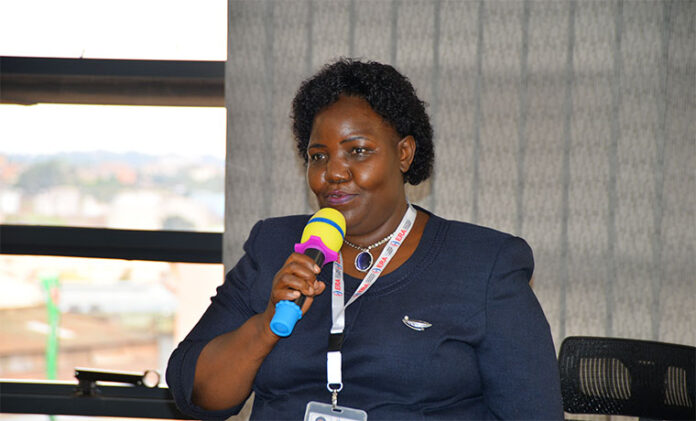The Chief Education Officer of the Uganda Electricity Regulatory Authority (ERA), Eng. Ziria Tibalwa Waako, has tipped students and young professionals to adjust to the current dynamics if they are to excel in any career development.
According to her, having self-awareness, frequently undergoing changes, and thinking differently in all aspects is critical for an upcoming professional.
Recently, while delivering a presentation to students’ leadership during a seminar during the Kampala Capital City Mid-Term student leaders conference at Nabisunsa Girls Secondary School, Eng. Ziria encouraged young people to embrace transparency and accountability in every step they take.
Eng. Ziria advised young people to admire and identify with successful people so as to shape their ways and urge to achieve in any career.
“I am the first female to assume the role of Chief Executive Officer of the Electricity Regulatory Authority in Uganda, so you can be anything you put your mind to achieve,’’ said Eng. Ziria.
To student leaders, Eng. Ziria urged them to emphasize gratitude, a positive attitude towards technology, exposure, and reading in order to realize their full professional potential, noting that leadership is a God-given gift.
She advised student leaders to have humanity and empathy for everyone to create equal and fair opportunity regardless of power and authority.
“As student leaders, you must uphold good communication skills, confidence, listening ability, emotional intelligence, and integrity,” said Eng. Ziria.
Uganda has one of the youngest populations in the world, with 78 percent of its citizens under the age of 30. Uganda’s youth unemployment rate for 2021 was 4.33%, a 0.33% increase from 2020, according to UBOS.
The recent report by the United Nations Children’s Fund (UNICEF) indicates that young people across the world are already unable to identify or acquire the skills needed for today’s job market, contributing to a global skills gap and exacerbating youth unemployment.
Titled “Reaching Yes: Addressing the Youth Employment and Skilling Challenge,” the report notes that young people aged 15–24 are unable to identify which skills they need for future employment opportunities. Moreover, young people are also unable to access relevant skills training, and employers lack a standard to verify the skills new employees claim to possess.















